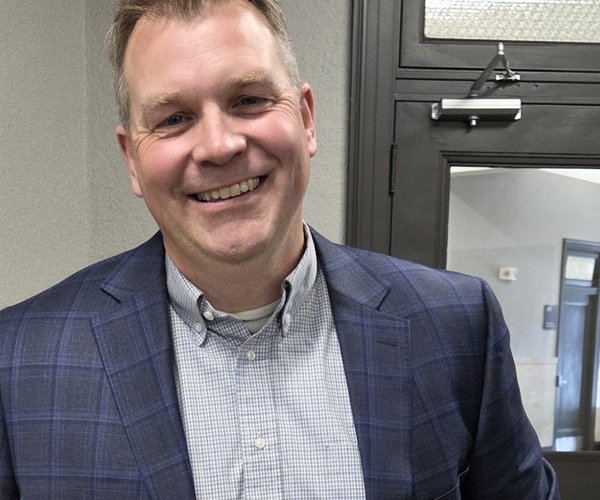BY KEITH LIPPOLDT
klippoldt@gbtribune.com
Historically, the Barton County Commissioners have supported Great Bend Economic Development with $250,000 annually to be used for projects and events that GBED saw fit. There have been years when the money was used in full and other years where not all of it was necessary. If there was a surplus, GBED would eventually earmark it for a different project.
On Dec. 17, 2024, then-Chairman Barb Esfeld and County Counselor Patrick Hoffman notified GBED the County may transition to “project-based economic development funding” in order to allow GBED to prepare for a potential change in future funding. On Tuesday morning, the commissioners voted unanimously to prioritize funding on a case-by-case basis.
“First, Barton County has always, in part of our budget, put some money into what’s called economic development line item; that was just for projects as they came up,” Hoffman said. “It was available if something came up that needed economic development funding. The reason counties fund economic development is when the county has the opportunity to increase the tax base that eventually comes back in the form of taxes to the county. And if you’re not growing your tax base, then you have to tax the same people more and more money every year. A few years ago, the commissioners looked into changing the way we were funding it instead of doing it as things happened, to instead treat Great Bend Economic Development as kind of one of our ‘directly funded partner agencies.’
“We’ve had some discussions and study sessions and business agenda about changing and going back to the old way, probably with more emphasis than we used to have, but still just doing it item by item. In December, Commissioner Esfeld and I worked on a letter just to put economic development on notice, because obviously it would affect their funding, and we wanted them to be aware of it. We sent that letter then we kind of got busy with end of the year stuff, and haven’t heard a lot back from them. So the question today is whether or not you guys want to formally take action and just go back to funding economic development projects on a case by case basis. As they come up, people would come back to these meetings, stand at the podium and request funding directly, and then you decide if you funded it or not.”
Each commissioner had the opportunity to explain their stance on the subject, and all five were in favor of changing to a case-by-case scenario.
“We saw a lot of people coming forward with needs, and it’s hard when you can see some really viable projects that need attention,” Commissioner Donna Zimmerman said. “And so I think this money will help us help agencies and other municipalities and so forth with their needs. For years, I’ve seen Barton County budget for economic development and not do anything with it. And so when we transitioned to a funding partner, that was an interesting concept, but I think this board has a lot of ideas and things that we’d like to see done and able to explore those. I think this money will be very well used.”
Hoffman replied the County has always had money available for GBED and they were wanting to be more involved in where it was being spent. “This is just an evolution of how the county can be more involved, but maybe in a different way that we have the last couple of years,” he said.
Commissioner Duane Reif was also on board in the change of funding.
“I think the economic development does an excellent job, but I feel like as commissioners, we’ve tried to be very transparent on how we spend our money,” he said. “And with the amount of dollars that we’re responsible for, as far as the taxpayer money, this will be a better way to answer to our taxpayers how important it is that what we do with each dollar.”
Before asking for a motion, Chair Tricia Schlessiger shared her thoughts on the issue.
“I think maybe today’s environment is demanding that we be transparent with every dollar,” she said. “I think that we have to be able to say we gave ‘X’ amount to this project and this will just help us be more transparent. I’m excited. I think we have some great ideas and projects that we can move forward on.”
Zimmerman made a motion to change the funding process and her motion was seconded by Reif. The motion carried 5-0.
“That’s the advantage of doing it. Direct funding – we can say we’re giving this money for this exact thing, and just extremely easy to track,” Hoffman said.





